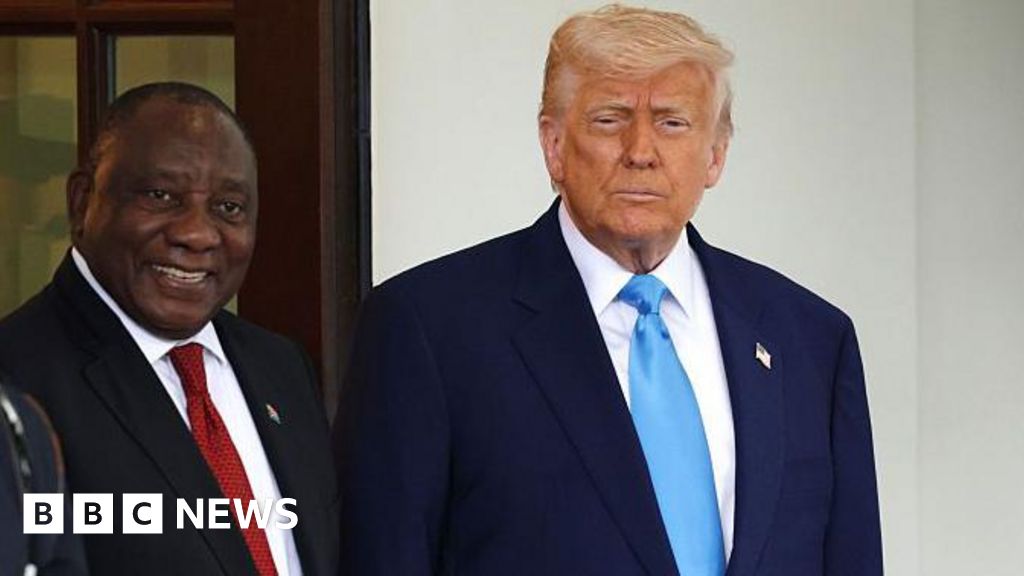Trump hits South Africa with 30% tariffs - no African country has a higher rate

Trump's Trade Tariffs Hit South Africa Hardest in Sub-Saharan Africa
South African exports to the United States will face a steep 30% tariff, announced by former US President Donald Trump. This new levy, set to take effect on August 7th, places South Africa at the highest tariff rate in sub-Saharan Africa, signaling a further deterioration in relations between Washington and Pretoria.
The decision is a significant blow to South Africa, as the US is its second-largest trading partner. Other African nations, including Nigeria, Ghana, Lesotho, and Zimbabwe, will face a 15% tariff. Across the continent, Algeria and Libya will also incur a 30% tariff, while Tunisian goods will be charged at 25%. Kenya and Ethiopia will face a lower 10% rate.
Impact on South African Economy
The tariffs threaten key South African sectors that previously enjoyed duty-free access to the US market under the African Growth and Opportunity Act (Agoa). Agoa, enacted in 2000, aimed to foster economic growth and job creation in eligible African countries. Industries such as automobile manufacturing, farming, and textiles are particularly vulnerable.
“This is a concerning development that could have far-reaching consequences for South Africa’s economy,” says Dr. Wandile Sihlobo, Chief Economist at the Agricultural Business Chamber of South Africa. “The agricultural sector, which relies heavily on exports to the US, will likely face increased costs and reduced competitiveness. This could lead to job losses and a slowdown in economic growth.”
Ramaphosa's Response and Attempts at Negotiation
South African President Cyril Ramaphosa has stated that his administration will "continue negotiating with the US" and has "submitted a framework deal" in an attempt to mitigate the impact of the tariffs. The government is also finalizing a support package for companies vulnerable to the reciprocal tariffs.
The framework deal reportedly included commitments from South Africa to purchase US liquefied natural gas, simplify rules for US poultry imports, and invest $3.3 billion in US industries like mining. However, these efforts appear to have been unsuccessful in preventing the imposition of tariffs.
Wider Implications for US-Africa Trade Relations
Trump's decision effectively undermines Agoa, even though the agreement is officially up for review in September. The move casts doubt on the future of US-Africa trade relations and could prompt other African nations to seek alternative trading partners.
“This signals a shift away from the long-standing US policy of supporting African economic development through preferential trade agreements,” explains Professor Adebayo Olukoshi, a Senior Research Fellow at the Institute for Global Dialogue in South Africa. “It reflects a more transactional approach to foreign policy, prioritizing US interests above all else. This could push African nations to strengthen ties with countries like China, which has been actively investing in the continent for years.”
South African Wine Industry Faces Challenges
South Africa Wine has warned that the tariffs place the sector at a "severe disadvantage" compared to competitor countries with lower tax rates. The US is the fourth-largest importer of South African wine, which previously enjoyed duty-free access under Agoa. The association has urged both countries to resolve the matter swiftly to avoid long-term damage to trade, investment, and jobs.
Reactions from Other African Nations
Kenya welcomed having the "lowest rate among nations with comparable export interests." The country’s trade and industry department affirmed its commitment to strengthening trade and investment ties with the US.
In Lesotho, Trade Minister Mokhethi Shelile expressed concern that the 15% tariff would make the country's textile and garment industry "unable to compete at all." Lesotho has been a significant beneficiary of Agoa, exporting textiles and garments to major US brands. Uncertainty surrounding Agoa and the tariffs has already led to job losses and factory closures in the country.
Strained US-South Africa Relations
Relations between the US and South Africa have deteriorated since Trump took office. The former US president has previously accused South Africa of discriminating against its white minority, a claim repeatedly denied by the South African government. Trump also halted all aid to South Africa. Efforts by President Ramaphosa to mend relations during a meeting in May proved unsuccessful.
Historical Context of US-Africa Trade
The African Growth and Opportunity Act (Agoa) has been a cornerstone of US trade policy towards Africa for over two decades. It provides eligible African countries with duty-free access to the US market for a wide range of goods. The program has been credited with boosting African exports and promoting economic growth. However, some critics argue that Agoa has not been fully effective in diversifying African economies and reducing dependence on commodity exports. Trump's tariffs represent a significant departure from this established framework and raise questions about the future of US-Africa trade relations.
Originally sourced from: BBC News Africa
